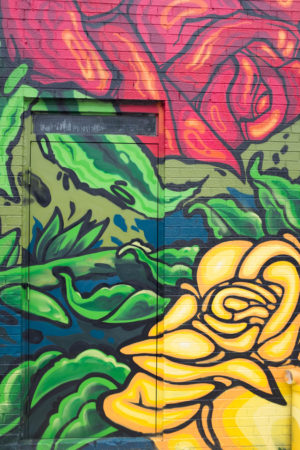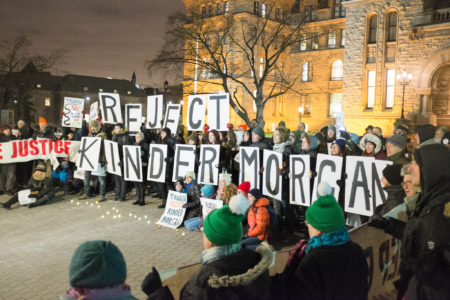Sometimes paired with the fallacious argument that only people who use no fossil fuels can legitimately oppose fossil fuel development is the statement: “We won’t stop using fossil fuels tomorrow”.
The logical error associated with using this statement to defend new fossil fuel infrastructure like fracking wells and bitumen sands pipelines (as well as new fossil fuel vehicles or power plants) is so obvious that it may seem unnecessary to state, but the quip is so popular among those trying to delay adequate action on climate change that it requires a quick rebuttal.
It’s true that human society is dependent on fossil fuels, and not only for discretionary activities that people can legitimately be asked to give up. That said, it’s now entirely evident that climate change threatens human civilization if unchecked, to say nothing of the profound damage it’s already doing to non-human nature. Preventing the worst impacts of climate change requires a rapid transition away from fossil fuels, and that is fundamentally incompatible with building new fossil fuel infrastructure.
Under contraction and convergence, it is plausible that some poor places can legitimately build a modest amount of additional fossil fuel infrastructure. This is most defensible in places that have low per capita emissions, low historical emissions, and where new fossil fuel use will address basic human needs instead of luxuries. None of these conditions apply in Canada or the United States, where per capita and historical emissions are both unconscionably high, and where most citizens routinely make heavy use of fossil fuels for trivial purposes.
The line about not giving up fossil fuels tomorrow is rhetorically appealing because it makes the speaker seem like a level-headed pragmatist and suggests that anyone who disagrees is out of touch with reality. In actual fact, our existing dependence on fossil fuels is an argument against new fossil fuel infrastructure, not for it. The media, members of the public, and decision-makers need to accept this.



